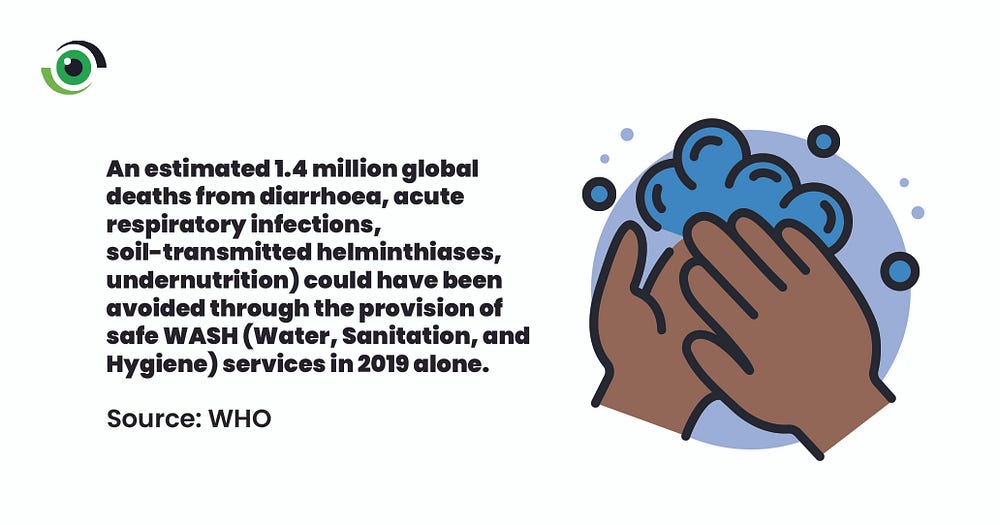GULU – The local authorities in Gulu have expressed concern over the increasing occurrence of open defecation within the city. Open defecation is defined as the act of defecating in fields, forests, bushes, water bodies, or other unsecured areas.
Officials state that the issue mainly stems from at-risk groups including homeless youth, people under the influence of alcohol coming back from nightspots, sex workers, and individuals with mental health challenges who gather in the city’s bustling commercial areas during nighttime.
A new study conducted by Vision Group’s Radio Rupiny has uncovered a concerning issue: numerous side streets in Gulu city are currently covered in human waste.
The areas most impacted are the Library and Bus Park B, where the odor from the garbage is extremely strong, drawing in flies and leading to unclean surroundings.
A street food seller, who wishes to remain unidentified, shared her frustration, mentioning that each morning she discovers her part of the corridor filled with feces.
She thinks this unsettling situation is mainly due to public restrooms being closed during the night, forcing night travelers to resort to using alleyways.
Property owners blamed
Jeff Lahjeme, the head of Bus Park B, voiced his dissatisfaction with local property owners, blaming them for failing to fulfill their duties by depending on caretakers for upkeep, which has been insufficient.
He expressed sorrow that the absence of maintenance leads people to use these abandoned spots as restrooms.
Lahjeme mentioned that there are regulations in place that punish individuals found defecating in public, but many offenders are unable to afford the large fine of 150,000 shillings.
In reaction to the problem of open defecation in alleyways, local officials are proactively working with property owners to explore upgrades, including adding security lighting, reinforced fencing, and paving sidewalks, with the expectation that these changes might also lead to fresh commercial prospects.
Cultural beliefs
Sharon Apiyo, who lives in Kirombe ward of Gulu city, mentioned in a previous conversation with New Vision Online that there are traditional customs, particularly in rural regions, where certain individuals in the community do not utilize toilets.
“It is considered a taboo in certain communities for pregnant women to use pit latrines, as they believe they might lose their children in them,” Apiyo stated.
George Okello, a local from Koro-Abili in the Omoro region, linked the widespread practice of open defecation in Acholi to economic hardship.
“You can’t ask people to install pit latrines when they can’t afford a daily meal,” Okello stated.
As per the 2020 water ministry sector performance report, 8.8 million people in Uganda engage in open defecation.
As per information from the World Health Organisation/UNICEF Joint Monitoring programme focused on water supply, sanitation, and hygiene, Uganda had an open defecation rate of 5% in 2020, compared to 14% in 2000.
Health risks
Uncontrolled waste disposal presents serious health dangers to people living in Gulu city, particularly raising the likelihood of cholera epidemics if no action is taken.
Defecating outdoors, as stated by the World Health Organisation and Unicef, is a violation of human dignity and poses a threat to children’s nutritional well-being and public health.
The eradication of open defecation is viewed as a key focus for enhancing the health, nutrition, and efficiency of people in developing nations, and it is specifically highlighted in SDG target 6.2.
The rate of open defecation has been consistently dropping. The rate of open defecation has been consistently dropping. From 2000 to 2022, the number of individuals engaging in open defecation fell from 1.3 billion to 419 million, representing a decrease of more than two-thirds.
In 2022, 36 nations still had open defecation rates ranging from 5% to 25%. In 13 countries, over 25% of the population continued to engage in open defecation.
In the Loro-Pece region, 74.8 percent of people have access to latrines, while slum areas face the greatest shortage of sanitation facilities.
Tips for sound bites on open defecation
Stephen Okello, the health and education secretary in the Laroo-Pece region, provided an update on current sanitation and hygiene programs designed to guarantee all homes have adequate toilet facilities.
He mentioned that advancements in waste disposal have been noticed, with a marked decrease in the occurrence of individuals throwing feces wrapped in plastic bags in alleyways—a pattern that was more prevalent in earlier times.
Geoffrey Topiny Onyuta, a health educator based in Gulu City, recognized the present circumstances but chose not to provide additional remarks, as he was participating in an important meeting in Entebbe.
Provided by SyndiGate Media Inc. (Syndigate.info).







